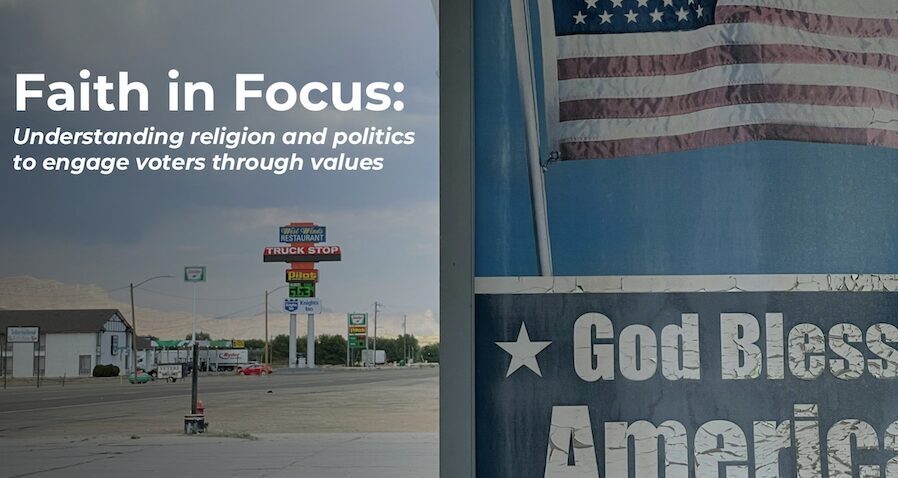
In light of recent public research from Pew which shows that the decline of Christianity in the U.S. has slowed and that a growing share of adults sees religion gaining influence in American life, GSG’s latest thought leadership research, Faith in Focus, explores how these trends are related to political behavior.
Drawing from a national survey of 1,000 registered nationwide voters, our new report reveals that most Americans, across party lines, identify with a religion — and, importantly, were raised in and influenced by a faith tradition, long before they became eligible voters.
The data also confirms that voters consider not only what’s best for them and their communities when voting, but also their religious and spiritual beliefs, just as much as they consider their party affiliations. For key persuadable voter groups, religion and values provide a lane to engage them beyond partisan cues — which has meaningful implications for Democratic messaging, particularly in tough down-ballot general election contests.
Key insights include:
- Across parties, Americans hold common beliefs: The majority of U.S. voters were raised in and currently practice a religion; as a result, they overwhelmingly believe that people have a soul or spirit and that a God or universal spirit exists. Relatedly, and regardless of partisanship, they’re “proud” when they hear God invoked in “God bless America.”
- Faith has an impact on political behavior, and values lead at the voting booth: A majority of Americans describe themselves as spiritual, people of faith, and religious, and most say their religious or spiritual beliefs are important to them when voting. Independent and undecided voters even say that these beliefs are more important than partisan cues.
- Values-based language wins: Framing Democratic candidates and the policies they support with values (particularly those of community, equality, and compassion) improves performance across the electorate by appealing to less-political voters, center-right women, younger voters, and voters of color – without alienating core groups in the Democratic coalition.
These insights point to an opportunity for Democrats to engage swing voters with faith-based language to demonstrate their values, communicate respect, and win.
Download the full report to understand how Democrats can best leverage the relationship between American religion and politics.